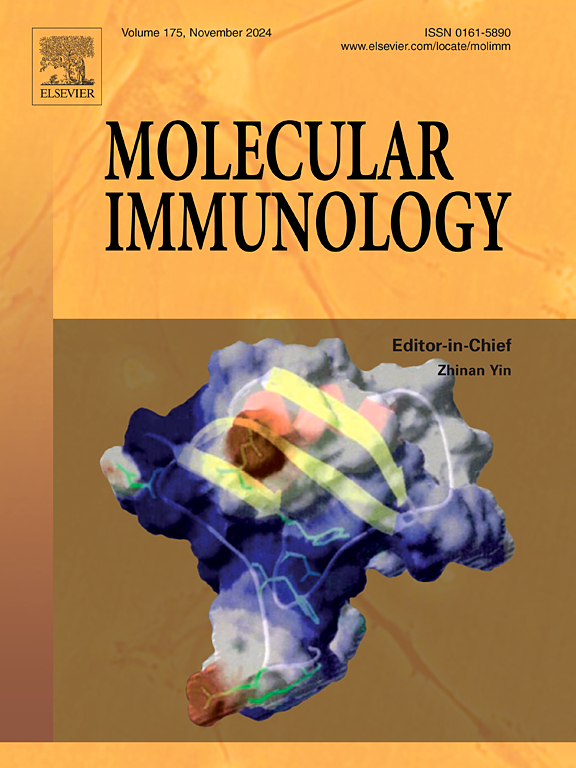鞘脂病神经炎症的靶向治疗
IF 3
3区 医学
Q2 BIOCHEMISTRY & MOLECULAR BIOLOGY
引用次数: 0
摘要
溶酶体贮积病(lsd)是一类主要由溶酶体酶缺陷引起的遗传性代谢疾病,导致未降解底物的积累。鞘脂病是lsd的一个亚型,主要与中枢神经系统(CNS)的深度受累有关,其特征是由于大量鞘脂积累导致的进行性神经退行性变。在许多涉及中枢神经系统的lsd中,一个共同的病理特征是小胶质细胞和星形胶质细胞的早期激活,这通常先于并预测随后的神经元丢失区域。神经炎症破坏中枢神经系统稳态的程度似乎取决于其发病、程度和持续时间。尽管神经炎症过程越来越多地被认为是鞘脂病疾病进展的关键因素,但神经胶质激活和炎症级联反应启动的分子机制仍不完全清楚。因此,小鼠鞘脂病模型有助于阐明这些致病过程,并为评估治疗策略提供有价值的平台。本文综述了神经炎症在鞘脂病中的作用,总结了从临床前模型中得到的见解,并讨论了抗炎干预减轻中枢神经系统病理和改善临床结果的治疗潜力。本文章由计算机程序翻译,如有差异,请以英文原文为准。
Therapeutic targeting of neuroinflammation in sphingolipidosis
Lysosomal storage diseases (LSDs) are a class of hereditary metabolic disorders primarily caused by lysosomal enzyme defects, leading to the accumulation of undegraded substrates. Sphingolipidoses, a subset of LSDs, are primarily associated with profound involvement of the central nervous system (CNS), characterized by progressive neurodegeneration due to massive sphingolipid accumulation. A common pathological feature among many CNS-involved LSDs is the early activation of microglia and astrocytes, which often precedes and predicts regions of subsequent neuronal loss. The extent to which neuroinflammation disrupts CNS homeostasis appears to be determined by its onset, magnitude, and duration. Although neuroinflammatory processes are increasingly recognized as critical contributors to disease progression in sphingolipidoses, the molecular mechanisms underlying glial activation and the initiation of inflammatory cascades remain incompletely understood. Therefore, mouse models of sphingolipidoses have been instrumental in elucidating these pathogenic processes and provide valuable platforms for evaluating therapeutic strategies. This review critically examines the role of neuroinflammation in sphingolipidoses, summarizes insights derived from pre-clinical models, and discusses the therapeutic potential of anti-inflammatory interventions to mitigate CNS pathology and improve clinical outcomes.
求助全文
通过发布文献求助,成功后即可免费获取论文全文。
去求助
来源期刊

Molecular immunology
医学-免疫学
CiteScore
6.90
自引率
2.80%
发文量
324
审稿时长
50 days
期刊介绍:
Molecular Immunology publishes original articles, reviews and commentaries on all areas of immunology, with a particular focus on description of cellular, biochemical or genetic mechanisms underlying immunological phenomena. Studies on all model organisms, from invertebrates to humans, are suitable. Examples include, but are not restricted to:
Infection, autoimmunity, transplantation, immunodeficiencies, inflammation and tumor immunology
Mechanisms of induction, regulation and termination of innate and adaptive immunity
Intercellular communication, cooperation and regulation
Intracellular mechanisms of immunity (endocytosis, protein trafficking, pathogen recognition, antigen presentation, etc)
Mechanisms of action of the cells and molecules of the immune system
Structural analysis
Development of the immune system
Comparative immunology and evolution of the immune system
"Omics" studies and bioinformatics
Vaccines, biotechnology and therapeutic manipulation of the immune system (therapeutic antibodies, cytokines, cellular therapies, etc)
Technical developments.
 求助内容:
求助内容: 应助结果提醒方式:
应助结果提醒方式:


